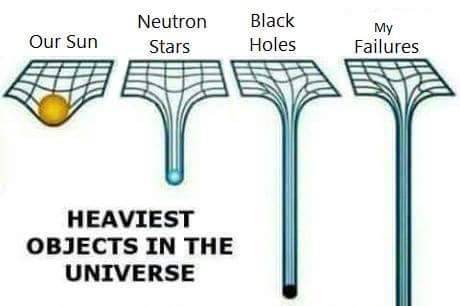As A Child, I Had This Really Interesting Way Of Dealing With Executive Dysfunction:
as a child, i had this really interesting way of dealing with executive dysfunction:
when i needed to do something but did not get the impulse to actually start, i counted to 20.
and at 20, i did the thing.
i started this in order to get me out of bed in the morning, and after a few weeks it was a reliable source of starting impulses. every time i hit 20, i got started.
somewhere along the way i stopped doing it, because it was weird and nobody else needed to count in order to do stuff.
it makes me wonder, how many brilliant coping skills do we loose or never develop because we live in a neurotypical world and nobody teaches us these things? because we think they’re weird, because we don’t have words for what we’re doing, because they seem to have no place in this world?
More Posts from Sordidsass-blog and Others
Why is this my life?

If you’re an introvert, follow @introvertunites.







Following Trauma
More than 2.6 million servicemen and women have deployed to Iraq or Afghanistan since September 11, 2001. Many veterans return home from their service with symptoms of post-traumatic stress, depression, chronic pain and traumatic brain injury. These symptoms are also common among civilian trauma survivors.
Now researchers from Harvard Medical School and other institutions will embark on a five-year-long project, the Aurora study, to better understand and treat these disorders. The research will utilize the efforts of 19 institutions and more than 40 scientists.
Trauma survivors will be enrolled in the study in the immediate aftermath of trauma and followed longitudinally for one year using sophisticated adaptive sampling methods to perform a comprehensive, state-of-the-art assessment of genomic, neuroimaging, physiologic, neurocognitive, psychophysical, behavioral and self-report markers.
In addition to its unparalleled scope, the study differs from previous studies in that it will assess neuropsychiatric effects of trauma broadly rather than focus on only one or a few diseases.
“We want to be patient-centered and not diagnosis-centered,” said Samuel McLean, lead principal investigator of the study and an emergency medical physician at the University of North Carolina at Chapel Hill.
Read more
Funding: The five-year-long project is funded by the National Institute of Mental Health.
Raise your voice in support of expanding federal funding for life-saving medical research by joining the AAMC’s advocacy community.

I know I tag everything with “about me” but this is about me


All done with my dominant hand in a cast (except for this posting!). Rather proud of myself. I apologize for the poor lighting.

Epic real-life Space Invaders game uses drones, motorized seat and lasers
Makers at Israel’s GeekCon whip up a version of a classic arcade game that puts players in the center of an alien invasion while still maintaining the 8-bit kitsch.











Watch: President Obama delivers pointedly feminist speech at United State of Women summit

Maybe we don’t heal by convincing ourselves that someday, the pain will fade; that we’ll return to our former selves and reclaim the life we used to have. Maybe we heal when we accept that it’s okay to never go back; when we stop trying to use the broken pieces to rebuild the old picture, and instead, create a new one. Maybe we heal by affirming that even with this pain, we can craft a life that gives us meaning; that even when there are storms that flood our hearts, we can learn how to swim; that when night falls, we can learn how to create our own light. Maybe, it means trusting that no matter how many times we have to recreate ourselves and redirect our path, we will end up where we’re meant to be.
Daniell Koepke (via internal-acceptance-movement)
-
 therapy-sideblog reblogged this · 1 month ago
therapy-sideblog reblogged this · 1 month ago -
 0dotexe liked this · 1 month ago
0dotexe liked this · 1 month ago -
 rainn2colors liked this · 2 months ago
rainn2colors liked this · 2 months ago -
 distracteddaintydemon reblogged this · 2 months ago
distracteddaintydemon reblogged this · 2 months ago -
 distracteddaintydemon liked this · 2 months ago
distracteddaintydemon liked this · 2 months ago -
 your-local-gummyworm reblogged this · 2 months ago
your-local-gummyworm reblogged this · 2 months ago -
 a-neurodivergent-blog reblogged this · 3 months ago
a-neurodivergent-blog reblogged this · 3 months ago -
 universalthaumaturge reblogged this · 3 months ago
universalthaumaturge reblogged this · 3 months ago -
 notarealwelder liked this · 3 months ago
notarealwelder liked this · 3 months ago -
 humanfist reblogged this · 3 months ago
humanfist reblogged this · 3 months ago -
 kaijubluedreams reblogged this · 3 months ago
kaijubluedreams reblogged this · 3 months ago -
 tsundoku78 reblogged this · 3 months ago
tsundoku78 reblogged this · 3 months ago -
 tsundoku78 liked this · 3 months ago
tsundoku78 liked this · 3 months ago -
 selestesolstice liked this · 3 months ago
selestesolstice liked this · 3 months ago -
 kosah-hedron liked this · 3 months ago
kosah-hedron liked this · 3 months ago -
 serena-smith liked this · 3 months ago
serena-smith liked this · 3 months ago -
 gammarailgun reblogged this · 3 months ago
gammarailgun reblogged this · 3 months ago -
 folkqueer liked this · 3 months ago
folkqueer liked this · 3 months ago -
 dailydoseofcashew reblogged this · 3 months ago
dailydoseofcashew reblogged this · 3 months ago -
 cophoenixgirl liked this · 3 months ago
cophoenixgirl liked this · 3 months ago -
 cupidflings liked this · 3 months ago
cupidflings liked this · 3 months ago -
 hi-there-cake liked this · 3 months ago
hi-there-cake liked this · 3 months ago -
 disturbnottheharmony reblogged this · 3 months ago
disturbnottheharmony reblogged this · 3 months ago -
 brainrotdotorg liked this · 3 months ago
brainrotdotorg liked this · 3 months ago -
 dogdays764 reblogged this · 3 months ago
dogdays764 reblogged this · 3 months ago -
 dogdays764 liked this · 3 months ago
dogdays764 liked this · 3 months ago -
 casualfruit reblogged this · 3 months ago
casualfruit reblogged this · 3 months ago -
 casualfruit liked this · 3 months ago
casualfruit liked this · 3 months ago -
 faineant-girl liked this · 3 months ago
faineant-girl liked this · 3 months ago -
 periidote reblogged this · 3 months ago
periidote reblogged this · 3 months ago -
 moonlithaze reblogged this · 3 months ago
moonlithaze reblogged this · 3 months ago -
 moonlithaze liked this · 3 months ago
moonlithaze liked this · 3 months ago -
 iceninekrills reblogged this · 3 months ago
iceninekrills reblogged this · 3 months ago -
 iceninekrills liked this · 3 months ago
iceninekrills liked this · 3 months ago -
 dangerxox reblogged this · 3 months ago
dangerxox reblogged this · 3 months ago -
 hauntedtaxidermy reblogged this · 3 months ago
hauntedtaxidermy reblogged this · 3 months ago -
 certifiedbullshitpeddler liked this · 3 months ago
certifiedbullshitpeddler liked this · 3 months ago -
 urgentkettle reblogged this · 3 months ago
urgentkettle reblogged this · 3 months ago -
 urgentkettle liked this · 3 months ago
urgentkettle liked this · 3 months ago -
 thegingerfaggot reblogged this · 3 months ago
thegingerfaggot reblogged this · 3 months ago -
 thegingerfaggot liked this · 3 months ago
thegingerfaggot liked this · 3 months ago -
 eternighost reblogged this · 3 months ago
eternighost reblogged this · 3 months ago -
 trjnjtyy liked this · 3 months ago
trjnjtyy liked this · 3 months ago -
 serkeight liked this · 3 months ago
serkeight liked this · 3 months ago -
 since-times-long-forgotten reblogged this · 3 months ago
since-times-long-forgotten reblogged this · 3 months ago -
 since-times-long-forgotten reblogged this · 3 months ago
since-times-long-forgotten reblogged this · 3 months ago -
 anonymous-hypno-blog liked this · 3 months ago
anonymous-hypno-blog liked this · 3 months ago
Struggling with mental illness after a traumatic event most likely caused by mental illness. Sexual Assault Survivor.
282 posts